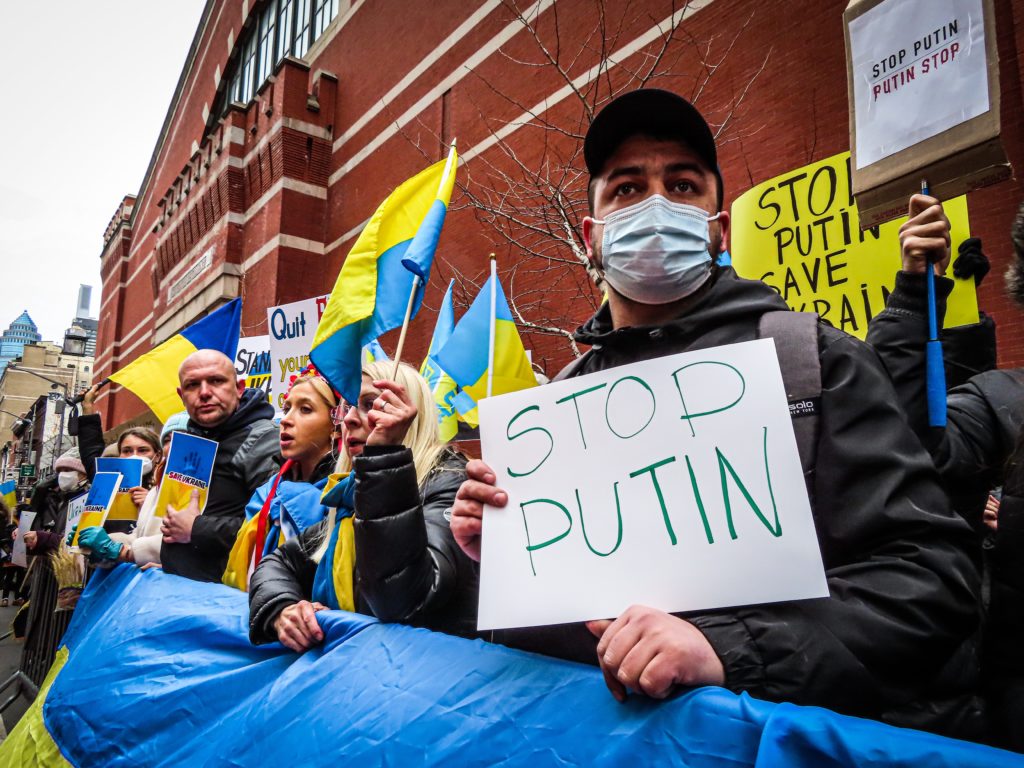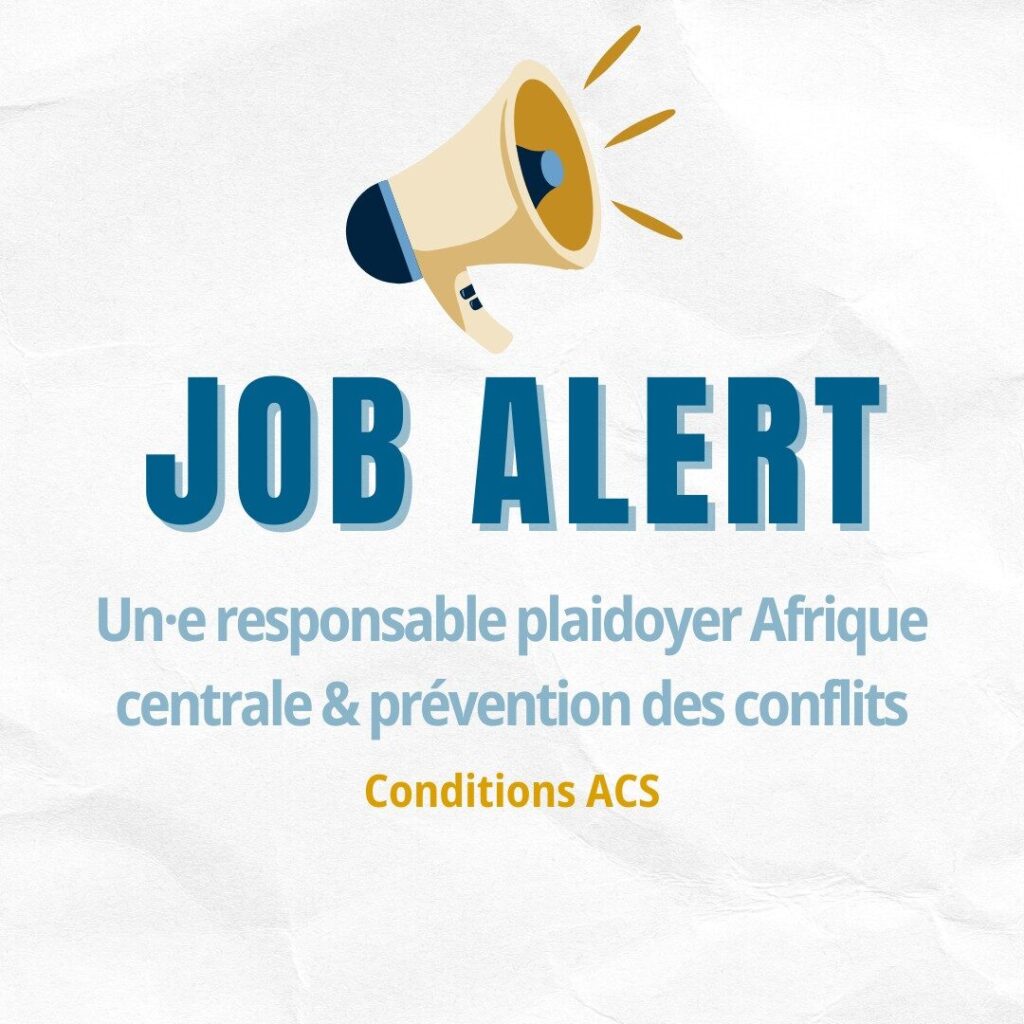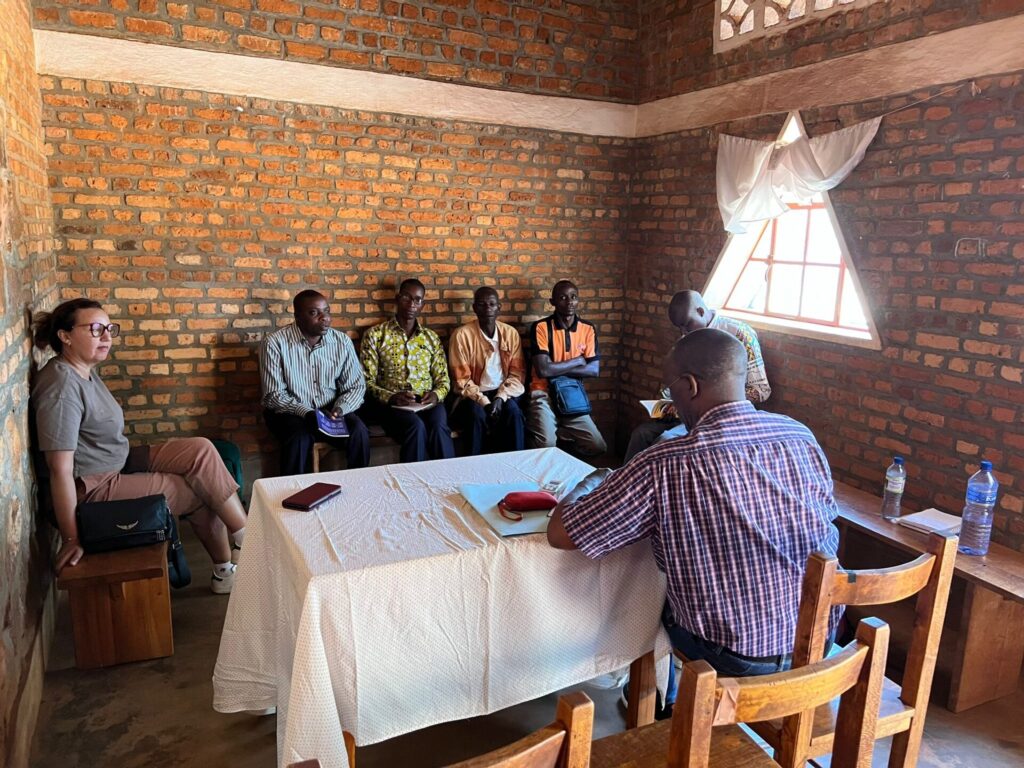The evolution of the conflict between Ukraine and Russia worries and overwhelms European citizens with information. Several feelings come together... First of all, empathy for the Ukrainian population which is illustrated by numerous outpourings of solidarity and offers of welcome. Then, a concern which is gradually growing and which concerns the duration of the conflict, its consequences on our ways of life. Finally, a significant concern, relating to the territorial expansion of the conflict towards the West or the use of nuclear weapons.

Image credit: Katie Godowski.
In Belgium, what brings together citizens, political leaders, associations and even academics today is the desire for an immediate cessation of clashes and a return to a peaceful situation. allowing dialogue between Ukraine and Russia.
However, we are unfortunately forced to observe that divisions exist within Belgian society on the methods to achieve this cessation of the conflict. These divisions run through, for example, the pacifist associative sector and undoubtedly contribute to diminishing the strength of the pacifist movement.
Belgian society is not divided on the idea that the union which binds the Member States together is based on the values of solidarity, the search for the common good and democracy. It tends more to divide and question the consequences, positive or negative, of the security trajectory taken by the European Union.
Militarization versus culture of peace: the European Union program
We are forced to accept that the world order is changing and the EU is not impervious to these changes. The policies and strategies of the European Union tend to change in order to respond to new international challenges and issues. With this in mind, for several years, the development of the European Union's militarization strategy has been accelerating. While it is important that the European Union can react together in situations like the war in Ukraine, or strengthen its autonomy in the face of external pressures, this strategy nevertheless exposes certain problems. On the one hand, the resources that the European Union mobilizes do not replace those that each member state allocates to its national military strategy but are added together. On the other hand, this additional cost is no guarantee of a common positioning because national interests often remain privileged.
Since its creation, the European Union has stood out by advocating the construction of peace through economic and cultural exchanges, “ promote peace, its values and the well-being of its peoples » according to article 3 of the Lisbon Treaty, rather than opting for increasing security of States vis-à-vis their neighbors. However, according to Professor Aymeric Potteau of the University of Lille, “ the European response is unprecedented since, on February 28, less than four days after the invasion, the organization decided to provide the Ukrainian armed forces with assistance in the form of financing or military equipment intended to unleash lethal force.[1]. Without underestimating the political significance of such a decision, in many respects revealing the geopolitical trajectory of the EU ". The trajectory of the European Union therefore seems to be moving away from the essence of the Union.
Access a culture of European peace
The European Union's program for the coming years and its decisions regarding the war in Ukraine will be decisive. This is why it seems important to us to reiterate the need for a culture of peace. Culture of peace which is part of the long term and in no way replaces the solidarity of European populations and political leaders vis-à-vis the attacked State. But what is a culture of peace and how can we implement it in our policies?
Defined by the United Nations Assembly, “ the culture of peace is a set of values, attitudes, behaviors and lifestyles that reject violence and prevent conflicts by addressing their roots through dialogue and negotiation between individuals, groups and States ». La culture de paix met l’accent sur le développement de l’éducation aux droits humains, d’une bonne gouvernance, des méthodologies de résolutions de conflit, de la construction de la mémoire des conflits afin de prévenir les conflits et donc, construire la paix.
In the current situation, the EU's action as well as its inaction, as an actor in the international community and various international bodies, will have a significant impact. This is why, even more than the choice to act or not within a conflict, it is the justification behind this choice and the ideology it conveys which will be fundamental. It is up to civil society to propose a long-term vision on the meaning to be given to the sum of the actions taken by the State or the EU and to provide, in this sense, a future perspective on these security issues. peace. It must question what the culture of peace will cover within the European Union in the coming years as well as the responses that it should provide to the international conflicts raging today.
Conclusion
Since the Treaty of Lisbon, the EU has tended to move away from the construction of a culture of peace, although enshrined in its founding texts. By initiating militarization measures and policies, it is taking a new direction. She is starting a new chapter. However, it is imperative that citizens are aware of the importance of the turning point that has been taken in order to set its ambitions and limits. It is important that the share of the budget allocated to the construction of a culture of peace, as defined previously, is greater than that allocated to States to promote rearmament. The danger lies in replacing the first with the second.
We must choose to accept the bias represented by our adherence to a series of values in our reading of conflicts: democracy, human rights, equality of peoples and peace. Our reading of the conflict, and the actions that result from it, will be influenced by our adherence to democratic values as well as the authority of international law. The EU's mission is to promote more democracy and support populations fighting for their rights, by condemning actions that undermine these rights.
Beyond the divisions within the Belgian pacifist milieu, today we must remain vigilant to ensure that the promotion of dialogue and diplomacy in the promotion of the values of peace, democracy and international law supplants the promotion of so-called “diplomacy.” hard”, playing out through the armed forces and arms transactions. The challenge will therefore be to develop European pacifist ideology in the long term and, at the same time, act in a concrete and proactive manner in the face of the war currently taking place on Ukrainian territory.
We must call, together, for an immediate end to the war, for a bilateral ceasefire agreement leaving room for international mediation.
Mila Gatti.





